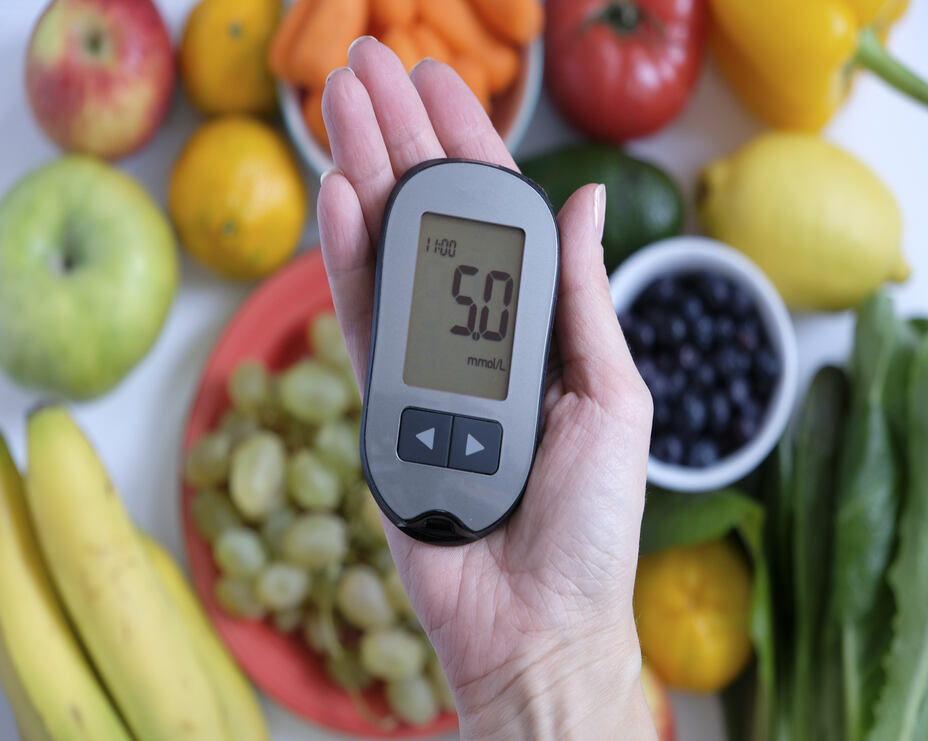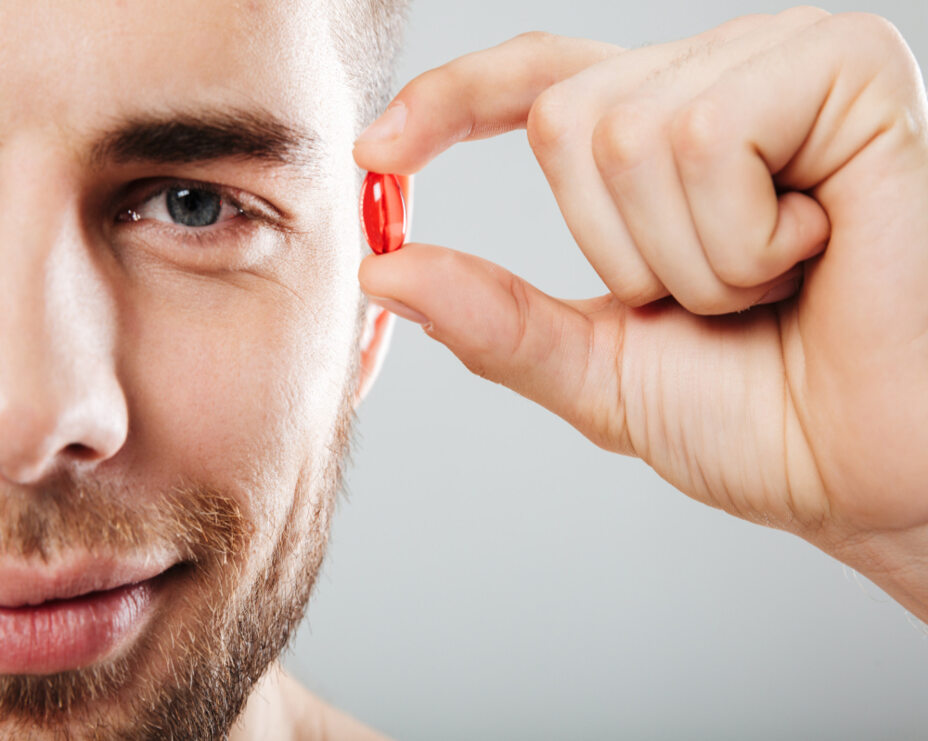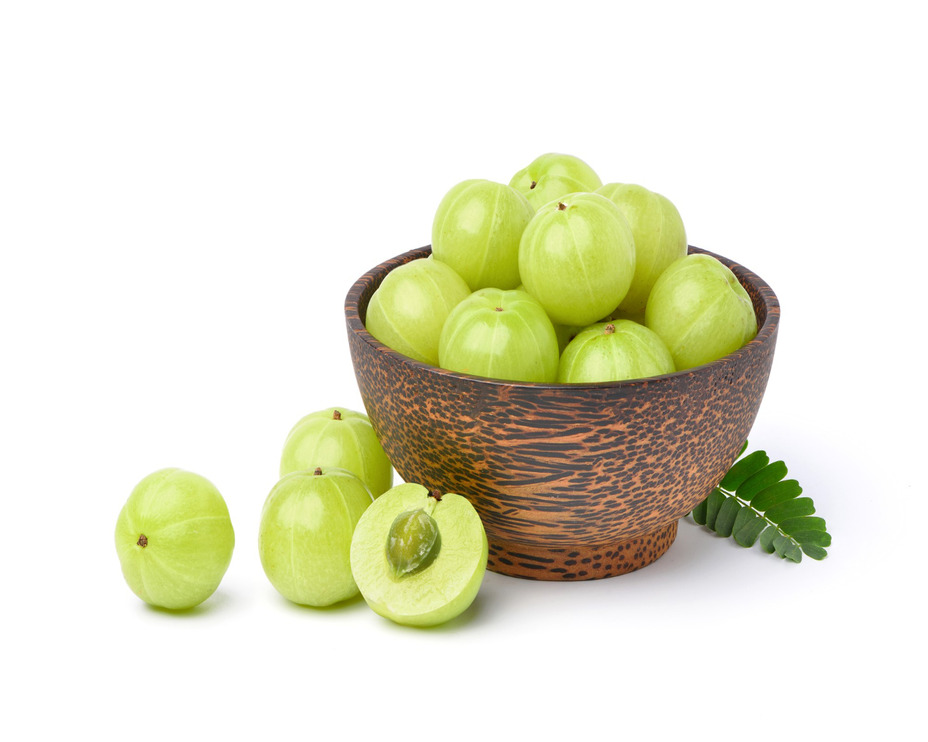Essential Takeaways
Quick tips to lower your blood sugar levels
- Exercise Regularly
- Reduce intake of food that is rich in Carbs
- You must include more fiber in your diet
- Try to implement portion control in your diet
- Choose foods with a low glycemic index
- Monitor your blood sugar levels
Maintaining blood sugar levels within the range recommended by your healthcare provider is crucial if you have diabetes. Everyone must follow a healthy diet. However, understanding how diet affects blood sugar levels is important if you have diabetes.
It’s not just about what you consume. Along with quantity, it’s also about what you eat, it’s also about what you include in your meals and snacks. Lowering glucose levels regularly contains a mix of lifestyle changes and, at times, medicine.
When should I check my blood sugar?
Depending on the type of diabetes and whether you take any medications for it, you should check your blood sugar frequently.
Typical times to check your blood sugar include:
- When you first wake up, before you eat or drink anything.
- Before a Meal
- Two hours after a meal
- At sleep time
Several variables may affect your blood sugar levels. While some of these effects are extremely difficult or impossible to predict, you can learn to forecast some of them with time and experience. For this reason, if your doctor advises you to check your blood sugar frequently, it's crucial.
Realize Which Kind of diabetes you have
Assuming that you're diabetic and that your glucose level is high, it is critical to acknowledge which kind of diabetes you have.
Type 1 diabetes happens when the pancreas doesn't create insulin. It should be treated with insulin, given as a mixture, or passed on through an insulin siphon. The absence of insulin can prompt a risky condition called diabetic ketoacidosis.
If you have Type 2 diabetes, you can generally control high glucose levels with diet, exercise, and medication.
High glucose can occur from food sources you eat, yet specific medicines, infections, stress, or pain can cause it.
What causes blood sugar to be high?
Many things can cause high glucose (hyperglycemia), including being worried, being sick, eating more than you want, and not giving yourself enough insulin. Over the long run, high glucose can prompt long-term, serious medical conditions.
Side effects of high glucose include:
- Feeling very tired.
- Feeling thirsty.
- Having blurry vision.
- Feeling to urinate more often
Tips to lower your blood sugar levels
Exercise Regularly
Normal activity can help you reach and maintain a moderate weight and increase insulin responsiveness. Increased insulin awareness implies your cells can utilize the accessible sugar in your blood group. Practice likewise assists your muscles with utilizing glucose for energy and muscle compression.
Assuming that you dislike the glucose on the board, consider regularly looking at your levels when working out. This will help you sort out how you answer different activities and keep your glucose levels from getting exorbitantly high or low.
Carb intake
Consuming carbs fundamentally affects glucose levels. Your body separates carbs into sugars, essentially glucose. Once insulin is released, it works with the body's ability to utilize energy. High blood glucose levels can be caused by starches or foods that disapprove of insulin.
Eat a few carbs as long as you watch out for your glucose levels. In any case, picking entire grains over refined starches and handled grains offers more dietary advantages and brings down glucose levels.
Eat more fiber
Dietary fiber facilitates the slowing down of carbohydrate breakdown and sugar uptake, promoting a smoother and more sustained rise in blood glucose levels. There are two types of fiber, insoluble & soluble.
While both are critical, soluble fiber has unequivocally been shown to additionally foster glucose on the board, while insoluble fiber hasn't been shown to have this effect. A high-fiber diet can work on your body's capacity to control glucose and limit glucose lows. This could assist you with managing type 1 diabetes.
Foods that are rich in fiber
Try to include in your diet, enough Vegetables, Fruits, Legumes, Whole Grains, Drink water & stay hydrated.
Drinking adequate water helps you keep your glucose levels within a solid range. As well as avoiding dehydration, it helps your kidneys flush out any excess sugar through pee.
Nuts, nut butter, and seeds
All nuts are high in protein and healthy fats. Healthy fats slow your stomach-related framework and the rush of sugar from your stomach to the bloodstream. Seeds chia, flax, pumpkin, sunflower, and sesame are another incredible choice, particularly for individuals with nut sensitivities.
Whole grains
Whole grains like oats are an extraordinary source of B nutrients, magnesium, chromium, and folate. These food varieties can lower cholesterol since they are lower in sugar and higher in dissolvable fiber than starches. Rather than sweet grains, try to move oats with steel cuts. Basic sugars are connected to obesity, coronary illness, and diabetes.
Implement portion control
Portion control can assist you with managing your calorie consumption and keeping a moderate weight. Thus, weight management supports glucose levels and has been shown to lower the risk of developing type 2 diabetes.
Here are some helpful tips for managing portion sizes:
- Use Smaller Plates
- Avoid All-You-Can-Eat Restaurants
- Check Food Labels And read the serving sizes
- Keep a food journal
- Eat slowly
Choose foods with a low glycemic index
The glycemic index (GI) measures how rapidly carbs separate during absorption and how quickly your body assimilates them. This influences how rapidly your glucose levels rise. The Gls partitions food varieties into low, medium, and high GI and positions them on a size of 0-100. Low GI food sources have a positioning of 55 or less.
Both the amount and kind of carbs you consume determine what food means for your glucose levels. In particular, eating low-GI food varieties has been shown to reduce glucose levels in people with diabetes.
Some examples of foods with a low to moderate GI include
Bulgur, Barley, Unsweetened Greek Yogurt, Oats, Beans, Lentils, Legumes, Whole Wheat Pasta, and Non-Starchy Vegetables etc. Apart from a healthy diet try to Manage Your Stress Levels, Stress Can Affect Your Blood Sugar Levels.
Your body delivers stress hormones like cortisol and glucagon, which raise glucose levels. Individuals with constant diabetes might profit from activities and unwinding methods like yoga and care-based pressure decrease to resolve issues with insulin discharge.
Monitor your blood sugar levels
You can better control your blood glucose levels by keeping an eye on them. A glucometer, or portable blood glucose meter, is what you can use to perform this at home. You and your physician can make this choice. Keeping track permits you to decide if you want to change your dinners or meds. It likewise assists you with figuring out how your body responds to specific food sources.
Consider taking daily readings of your levels and recording the results in a log. Additionally, monitoring your blood sugar in pairs might be more beneficial. For example, two hours after eating, or before and after exercising. Instead of completely giving up your favorite foods, this can help you to understand whether you need to make minor changes to a meal if it causes your blood sugar to rise. A few changes include reducing them to a handful or replacing a starchy side with a nonstarchy vegetable.
Get enough quality sleep
Getting sufficient rest feels amazing and is essential for good well-being. Unhealthy sleep habits and an absence of rest can influence glucose levels and insulin responsiveness, expanding the risk of developing type 2 diabetes. They can also increase cravings and result in weight gain.
Moreover, an absence of sleep expands the hormone cortisol, which is essential for controlling glucose levels, as recently referenced. Sleeping well and getting adequate rest are crucial. According to the National Sleep Foundation, a person should get 7-8 hours of sleep each night. Therefore, it is important to prioritize getting enough sleep to maintain a healthy weight and blood sugar levels.
To Improve The Quality Of Your Sleep, Try To:
Follow a sleep schedule
- Prevent caffeine and alcohol late in the day
- Regular exercise
- Cut down on screen time before bed
- Keep your bedroom cool
- Limit your naps
- Create a bedtime routine
- Use soothing scents such as lavender
- Avoid working in your bedroom
- Take a warm bath or shower before bed
- Try meditation or guided imagery
- Eat foods rich in chromium and magnesium
Micronutrient deficiencies have been related to diabetes and elevated blood sugar levels. Multiple micronutrient deficiencies can occur in people with poorly controlled diabetes. Diabetes patients should know the relevance of meeting their daily requirements for vitamins and minerals from whole foods.
Chromium-Rich Foods Include
- Meats
- Whole Grain Products
- Fruit
- Vegetables
- Nuts
Consider adding specific foods to your diet
Many foods & plants are there that are known to have many medicinal properties. However, because there have been few human studies or small sample numbers, the general quality of the data on these chemicals is low. Consequently, it is impossible to make firm suggestions about their application.
Some of the foods touted to have anti-diabetes effects include.
Apple cider vinegar: This ingredient reduces blood sugar levels by delaying the emptying of your stomach after a meal.
Cinnamon: This spice may improve blood sugar levels by enhancing insulin sensitivity and slowing the breakdown of carbs in your digestive tract. This moderates the rise in blood sugar after a meal Nevertheless, more research is needed.
Berberine: Research recommends that this compound brings down glucose by animating catalysts' breakdown of glucose, advancing your tissue's utilization of sugar, and expanding insulin creation.
Fenugreek seeds: While additional high examinations in people are required, there is some proof that fenugreek might assist with supporting blood sugar management.
It's fundamental to talk with your primary care physician before adding any of these food sources to your eating routine if you're taking glucose and bringing down medications, as a few homegrown enhancements may adversely cooperate with them.
Eat probiotic-rich foods
Probiotics are sincere microorganisms that offer different clinical benefits, including additionally creating glucose rules. Research shows that probiotic affirmation could cut down fasting glucose, glycated hemoglobin (HbA1c), and insulin obstruction in people with type 2 diabetes. Studies have shown that people who take various types of probiotics for no less than about two months experience more prominent upgrades in glucose levels.
Probiotic-rich foods contain fermented foods, such as:
- Yogurt, As Long As The Label States That It Contains Live Active Cultures
- Kefir
- Tempeh
- Sauerkraut
- Kimchi
Drink plenty of water
Water consumption aids in the kidney’s removal of excess sugar. More water consumption reduces the risk of elevated blood sugar. Keep in mind that water is the best. Sugar-filled beverages cause blood sugar to rise even further.
Try out Curegarden’s Healthy Supplements
Some health supplements from Curegarden have shown promise in lowering blood sugar management issues and boosting efficacy with herbal extracts. They help restore function by lowering symptoms and other variations. Curegarden focuses on delivering lifelong results to manage and control the fluctuating sugar levels naturally and go beyond blood sugar levels to enrich with goodness.
We believe in producing supplements for health and well-being and want to be consistent in offering the proper components that are useful for blood sugar management. We offer one of the best amla capsules in India [ GLUCOBALANCE] which helps to balance blood sugar levels naturally.
Curegarden and blood sugar management
Curegarden guarantees that its organic and natural blood sugar control pills are made with the cleanest possible ingredients. We approach the items with a contemporary flair, assisting in the genuine solution to convenient blood sugar management.
Our products have the potential to be the ideal beginning for proper rejuvenation, enabling your body to reach its peak state of health. With no long-term negative effects, our blood sugar management pills are a stand-alone tool for increasing energy and lowering blood sugar levels. We exactly figure out our diabetes supplements as a complete treatment to lessen glucose financially. Explore the benefits of the best amla capsules for your daily health regimen.
About the author
Essential Takeaways
Quick tips to lower your blood sugar levels
- Exercise Regularly
- Reduce intake of food that is rich in Carbs
- You must include more fiber in your diet
- Try to implement portion control in your diet
- Choose foods with a low glycemic index
- Monitor your blood sugar levels










